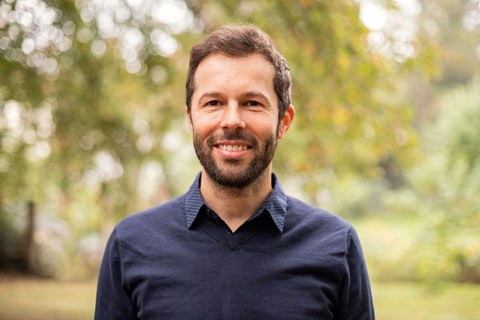Feb 01, 2023
ERC Consolidator Grant for Psychologist Philipp Kanske
321 researchers from the EU and the UK have won the 2022 European Research Council (ERC) Consolidator Grants. No less than two of these award-winning research projects are located at the Technische Universität Dresden: Physicist and electrical engineer Prof. Yana Vaynzof as well as psychologist and neuroscientist Prof. Philipp Kanske will each receive funding of around two million euros over a period of five years for their projects in the fields of materials engineering and psychology/neuroscience. With the Consolidator Grant, the European Research Council honors excellent, promising scientists who have 7 to 12 years’ experience after their PhDs and whose own independent research group is in the consolidation phase.
“INTERACT” to uncover the neural basis of empathy and perspective taking
Philipp Kanske is Professor of Clinical Psychology and Behavioral Neuroscience at Technische Universität Dresden. He researches the emotional and cognitive processes that enable social behavior and their changes in mental disorders. With his ERC project „INTERACT - The interplay of neural networks enabling social interaction“, he now wants to investigate how the abilities to feel empathy and to take in the other person’s perspective are implemented in the brain. In particular, he will investigate how the neuronal networks that enable empathy and perspective taking work together in complex social interactions. To this end, he will further develop methods of social neuroscience and study subjects in social interaction in the MRI scanner. The goal of INTERACT is to develop a training program that is tailored to the individual's goals and needs and uses small exercises in empathy and perspective-taking to improve social interaction. "As a psychotherapist, I can directly experience how important empathy and perspective-taking are for good social relationships, especially in critical situations such as an argument with a partner. People with mental disorders in particular often have problems forming their social relationships in a way that is good for them. With INTERACT, I hope to contribute to a better understanding of how empathy and perspective-taking function psychologically and neuroscientifically, in order to be able to develop a targeted and tailored training program for people with difficulties in social interaction," explains Prof. Kanske.
Media inquiries:
Prof. Philipp Kanske
Chair of Clinical Psychology and Behavioral Neuroscience
Tel.: +49 351 463-42225
Email:

